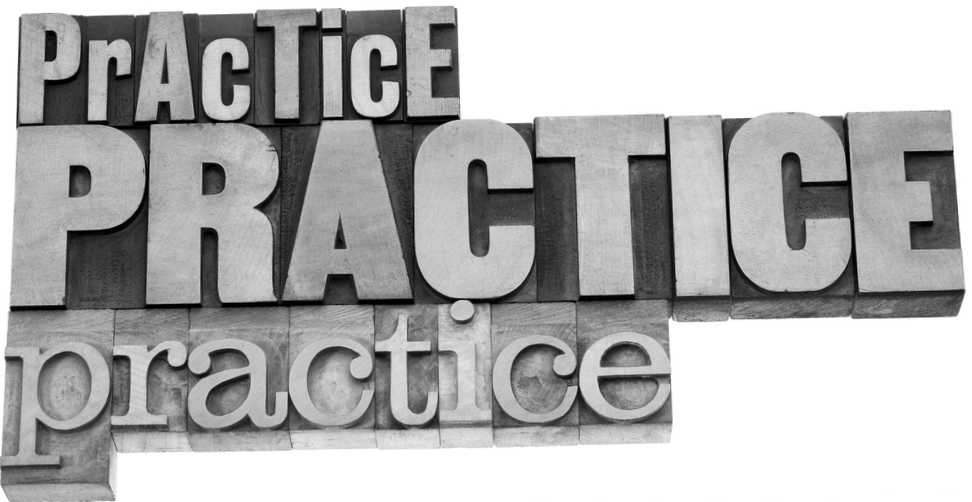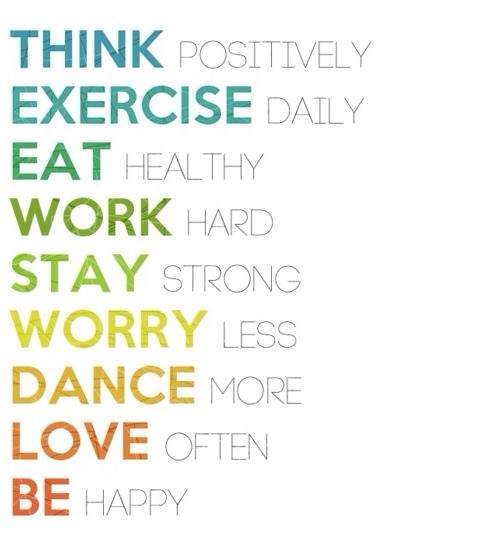If you don't already know your learning style, have a look through the below list to identify how you learn and see appropriate study tips to help!

Visual (spatial): You prefer using pictures, images, and spatial understanding.
* Take lecture notes
* Underline, highlight, or circle printed material
* Borrow others' notes, compare to own
* Draw pictures in notes to illustrate ideas
* Test yourself by visualizing main ideas or questions and write the details or answers
* Make and use flashcards for studying (vocabulary, formulas, condensed notes, etc.)

Aural (auditory-musical): You prefer using sound and music.
* Integrate auditory media, listening techniques, sound, rhyme, or even music in your learning and studying.
* You can also use music, rhythm, rhyming and music techniques to memorize and retain information.
* Replacing the lyrics of a favorite song with information you're learning is a very powerful way to memorize large amounts of information for aural learnings.

Verbal (linguistic): You prefer using words, both in speech and writing.
* Take notes. Lots of notes. This is especially important for Read & Write Learners! The act of writing out notes will help will cement the ideas and facts into a student’s head. Not only does note taking put the information from a lesson into words, it involves the student actually writing them down themselves.
* Write the study notes in your own words
* Rewrite these notes
* Keep handouts and summarise in your own written words
* Use bullet point lists
* Turn diagrams and chart into words

Physical (kinesthetic): Kinesthetic learners are natural doers, they learn best when they discover things by doing them.
* Use flash cards
* Study in short blocks
* Use plenty of examples when writing study notes
* Study with other people
* Try listening to music whilst studying

Logical (mathematical): You prefer using logic, reasoning and systems.
* Break large amounts of material down into segments and find ways in which these segments relate.
* Look for patterns, associations and relationships between concepts in order to maximize understanding.
* Create your own graphs, charts, outlines and maps is a tangible way to personalize the information, cementing it further into your memory.
* Lists are a good tool for learners who are logical because you can categorize information in this way.
Social (interpersonal): You prefer to learn in groups or with other people.
* Create a study group with others prior and during the course
Solitary (intrapersonal): You prefer to work alone and use self-study.
.................................................................................................................................................

Get organised If, like many mature age students, you are dealing with extra commitments in addition to your studies, it’s especially important to get organised before your course starts so that you’re ready to go from day one. After all, a last-minute rush could put your whole schedule out of order and cause unnecessary stress. This may mean organising child care for the days you’re in class, purchasing your books, taking note of assessment due dates. This will all pay off once the course begins. Even little things, like making sure you’ve read your assessment guidelines, will help.
Test yourself before you’ve studied. It’s called “pre-testing.” Benedict Carey, author of How We Learn, says it’s “one of the most exciting developments in learning-science.” What does it entail? Pretty much exactly what it sounds like: quizzing yourself on new material before you’ve reviewed your notes.
Quiz yourself instead of re-reading. When you reinforce your memories by testing them, they get much stronger than if you simply re-read a passage. Don’t waste your time trying to re-read rules or textbooks in order to memorise them. Test yourself to bolster your memory.
Set your desk up for success. Like working from home instead of at the office, going back to studying as an adult requires adapting to a new environment. Create a comfortable, well-lit, designated study space that’s all your own. Not only will it keep your study time separate from your home or work life, it will serve as a physical reminder to others to let you focus without interruption or distraction.
Devise a study routine. There’s a reason for back-to-school routines for kids: they work. Establish your own routine at the beginning of every course or training block to help you keep up with your coursework, improve your time management and protect your other commitments. Even the simplest routine, when executed consistently, can help ensure that you get the most important things done.
Embrace the change. Any significant change, whether it’s returning to the workforce, having a baby or going back to study, means shifting your priorities. Because everyone has the same 24 hours to spend each day, adding classes and studying to your life may mean you have to say “no” or “not now” to some other things. Recognize that while you’re studying, you’ll have to make short-term trade offs with your time.
Ask for help. Superheroes are for Hollywood, not families and classrooms. If there’s an area in which you’re struggling—at home or at your course—ask for help. Enlist your family’s assistance with chores and errands. Tell friends what they can and can’t do to encourage you. Talk to the trainer about coursework, especially if you have questions or don’t understand. Seek out resources to help improve study habits or test taking.
Make connections. It’s tempting to isolate yourself from others in order to keep on top of a busy schedule, but don’t. Social connections with others inside and outside the classroom can help you enjoy the course and life more. One of the side benefits of completing a course as an adult is being exposed to people you might otherwise not interact with. Relish the opportunity, allowing these new relationships to enrich both your course experience and the quality of your life.
Create margin. All work and no play can make anyone dull and desperate. Be sure to work some downtime, pleasurable activities and breaks into your life. Resist the urge to overfill your schedule; instead, leave some margin in your day for exercise, sleep, helping others or just relaxing. These things will help boost mood and productivity.





